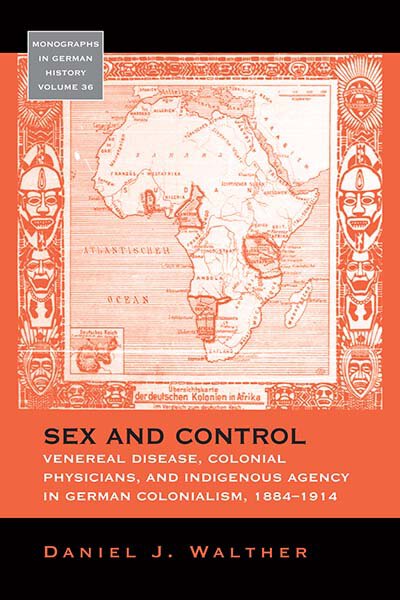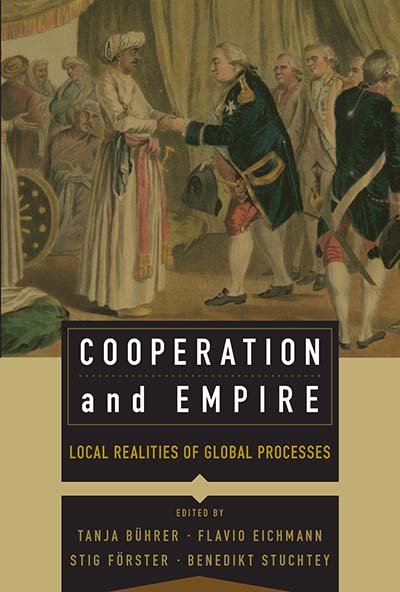
Series
Volume 36
Monographs in German History
See Related
History JournalsEmail Newsletters
Sign up for our email newsletters to get customized updates on new Berghahn publications.
Sex and Control
Venereal Disease, Colonial Physicians, and Indigenous Agency in German Colonialism, 1884-1914
Daniel J. Walther
198 pages, 18 tables, bibliog., index
ISBN 978-1-78238-591-2 $135.00/£104.00 / Hb / Published (March 2015)
eISBN 978-1-78238-592-9 eBook
Reviews
“Sex and Control provides the reader with a great deal of insight into the mechanisms behind both the reach of venereal disease and attempts to control it in the colonies… this solidly researched study offers fascinating detail for scholars of German colonialism. For more general scholars of medical history and empire, it provides an interesting counter-perspective to the ‘laboratories of modernity’ thesis that deserves further exploration.” • The English Historical Review
“Sex and Control is a significant work of scholarship that demonstrates German authorities’ deep and abiding concern about venereal disease in the colonies. Readers interested in the histories of German colonialism, sexuality, gender, and medicine will find much to admire here. Ultimately, Walther has shown that sex and health were central elements of foundation of the German colonial project, functioning to uphold the line between metropole and colony, between the self and the racialized other.” • H-Transnational German Studies
“…this study raises important questions about cross-colonial communication and broader patterns of modern European imperialism. In particular, it implicitly suggests the ways in which surgeons functioned as transnational actors, communicating ideas and approaches to the control of venereal disease within and across empires.” • Social History of Medicine
“The author…explains venereal diseases in the former German Imperial colonies in Africa, the Pacific, and Kiautschou/China as an epidemiological, but most of all, cultural and social phenomenon….A detailed study on venereal diseases and their political, social, cultural, and of course medical impact was missing so far. Walther adds it to colonial historiography.” • Wolfgang U. Eckart, University of Heidelberg
“…this is a thoroughly researched and original work which makes a fine contribution to its field. There has been a lot of interest recently in histories of empire and German history in the Wilhelmine period, and this is another excellent contribution to that field.” • Peter Monteath, Flinders University
Description
In responding to the perceived threat posed by venereal diseases in Germany’s colonies, doctors took a biopolitical approach that employed medical and bourgeois discourses of modernization, health, productivity, and morality. Their goal was to change the behavior of targeted groups, or at least to isolate infected individuals from the healthy population. However, the Africans, Pacific Islanders, and Asians they administered to were not passive recipients of these strategies. Rather, their behavior strongly influenced the efficacy and nature of these public health measures. While an apparent degree of compliance was achieved, over time physicians increasingly relied on disciplinary measures beyond what was possible in Germany in order to enforce their policies. Ultimately, through their discourses and actions they contributed to the justification for and the maintenance of German colonialism.
Daniel J. Walther is the Gerald R. Kleinfeld Distinguished Professor of German History at Wartburg College, where he teaches modern European and world history. He is the author of Creating Germans Abroad: Cultural Policies and National Identity in Namibia (Ohio UP, 2002) and several articles on the German experience in Namibia and on German colonialism. He has been a Fulbright Fellow, a Max Kade Fellow, a DAAD Faculty Researcher, and a visiting scholar at the Max Planck Institute for the History of Science.

